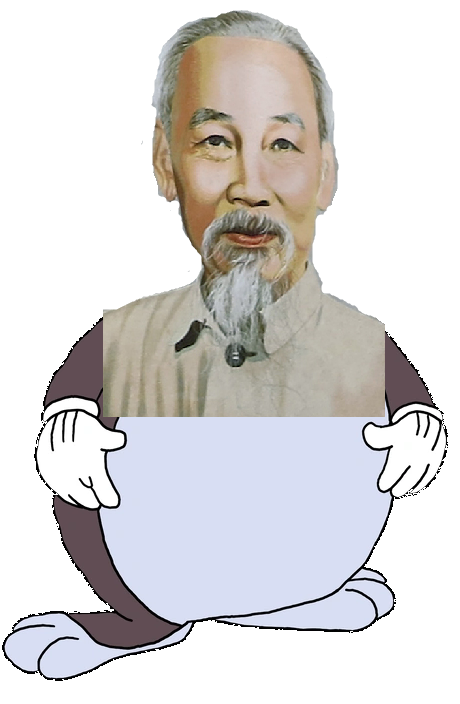Before you go all Marx on me, yes yes I know about utopian socialism vs scientific socialism, but its ok to have fun once in a while.
This is what my ideal leftist government looks like.
-
Unicameral legislature. No separate elections for executive. Ranked-choice voting.
-
Executive is formed from the directly elected legislators through voting among legislators.
-
1:10,000 elector-electee ratio at the state level and 1:100,000 at the federal level.
-
All state and federal reps can be recalled by an 80% no-confidence vote. This vote doesn't need to be initiated by the majority, you just go to your local govt office and submit a form of no-confidence, and once the threshold is reached, the elected rep is sacked.
-
No head of state, either at state level or federal level. This means no President, no Governors, no Speakers etc.
-
Anything in the constitution can be repealed, amended or added with simple 60% majority.
-
No more national-level courts. State-level judges are appointed only for 5 year terms. Judges have zero power to nullify laws.
-
The standing army is abolished and military duties are assigned to all adults.
a brutal civil war breaks out over which beer to put in it :garf-troll:
I think your judicial system is badly flawed, who tries federal law? What happens if state judges make a decision that conflicts with federal law? Does the person just appeal to the highest state courts, and then if the state decides wrong the federal government sends in the NKVD to bring the state to heel?
In any case, in any system where you need most of these institutions, you'd need strong Vanguard guidance and control (either via a party or other institutions like a council of unions)
Judges have to, by law, make a decision that does not conflict federal law. That's what I meant by judges no longer having the power to nullify laws. If there is a conflict between state law and federal law, they have to follow federal law.
The point is that decisions related to laws are only made by directly elected people, rather than the appointed judges.
The Vanguard party would be, ideally, the communist party that is elected and has the majority in government, and therefore is the one who appoints the judges in the first place.
Ok but what happens if there's a conflict between federal and state law, and the state judge interprets it in a way that the federal legislature disagrees with. State judges, after all, have their first loyalty to the state (and the state may not have a communist party in control, or have a different tendency. Texas is Bukharinite, what do?)
Honestly I'm against state/provincial governments anyway (and I'm more familiar with the much weaker states of the Australian system than the US one), I think Luxemburg has been proved correct on the national question in developed countries of the imperial core.
Additionally, i understand you're trying to get around the issues the early SU had with indirect soviet level elections to state and federal bodies, but don't you think this system is a bit disconnected from the control of worker's councils (who will presumably make up the local government and economic level.)
Finally as to the Head of State, since something has to fill HoS functions, are you presuming a de facto collective Head of State made up of a cabinet/privy council or a singular Prime Minister Head of State/Executive/Legislature combination
Alright. Dwarves under the mountain, typical Tolkienesque aesthetics - but atypical social structures. The idea here is that I wanted to explain a kinda socialisty government that evolved from the fuedal system, where Marxism doesn't really make sense because an industrial revolution hasn't happened yet.
All of Dwarven society is centered around the guilds. At one point in history, the peasants rose up against the nobility, who hoarded guild membership for themselves despite the very common Dwarven belief that mastering a craft is an essential prerequisite to get into the afterlife, and after a bloody conflict extracted a simple universal right which all Dwarves now share - guild membership. Every guild's membership had to be opened to all social classes, rank could only be gated by skill in the craft in question with no other considerations, and two special guilds - the "laborers" and the "churchdwarves" - were created and given representation in the proto state apparatus in order to represent all who were not members of the traditional crafts and trades guilds.
This system of "equal membership" having been adapted, the economic base of Dwarven lands changed - previously peasants were expected to do all of the mining and farming, but now the miners were applying en masse to the various smithing guilds, and the farmers to the various crafting guilds, and a new arrangement had to be made. Now all dwarves labor in the mines and the fields, and the forges/kitchens/woodshops/whatever else are shared, with every dwarf who pays their due in labor being granted time at their craft. Seniority being what it is, younger dwarves tend to do a bit more laboring and a bit less crafting, but this is said to even out over a dwarf's lifetime.
This has also effected the superstructure. Noble titles are still around, but they are basically meaningless since the tax base and social privileges that used to come with a noble title no longer exists. The King is still around, and still holds a lot of social power and prestige - but as ownership of land no longer means being able to tax peasants, his office is paid for by the guilds directly, who micromanage how their money is spent by the crown to ensure it is not being misused. The real political power in Dwarven lands are the guild councils, where representatives of each guild in a settlement meet to discuss and pass laws. Every guild determines its leadership a bit differently, with some being democratic and others simply assigning leadership positions by seniority, but importantly these positions can never be passed down through inheritance and any dwarf con hypothetically end up in one.
edit: Something I forgot to mention is that the perks of guild membership were substantial before the uprising, and now form the basis of Dwarven society. The brewers give beer to members of other guilds for free, so long as it is drank on the premises (no stockpiling). The innkeepers give rooms to the traveling members of other guilds, the weaponsmiths will give you a weapon if you get conscripted, and the armorsmiths will give you maille and a helmet. All of this is based on a "constitution" which consists of contracts between the guilds that were built up over hundreds of years as the organizations competed for noble membership and patronage - and with every dwarf now a member of a guild, these perks are simply expected by every dwarf. Apartments are carved into the mountain by the stonemasons, and furnished by the carpenters, and then given to any new dwarven family. These and other perks are so ubiquitous that most dwarves never carry gold - so long as you are a member in good standing with any guild, you'll have a proof of membership, and you'll be able to live a reasonably comfortable life in dwarven society.
As the guilds grew in power, the power of the nobility shrank proportionally - and as the nobles became unable to furnish their traditional obligations to the military, the guilds simply expanded to fill that void. The military is treated like a guild by the Dwarves, but one that doesn't exist except in wartime. Higher level guild councils vote on an amount of their revenue that they will contribute towards raising armies, which is then handed to the King who calls the traditional banners to arms under the scrutiny of the guilds' representatives.
During this time the King sits on the highest guild council as the leader of the military and the army's officers head out to the local councils to raise troops. Conscription usually falls on the youngest and lowest ranked adult dwarves in a settlement (adulthood starts at twenty in dwarven society, life expectancy for dwarves that live past age three is about two hundred), but usually the guild representatives come to an agreement about how many can be drafted from each of them, which ensures that the labor shortage that ensues after a draft is evenly spread out.
In foreign affairs, each of the guilds can hypothetically act completely independently, just as high ranking nobility often do in other systems. The royal family still performs its role as the primary diplomats for the dwarven realm, but the attempts by the king to acquire foreign land and therefore a tax revenue stream independent from the guilds have been stymied by neighboring kings passing laws against their realm's land being inherited by foreigners. The balance of power between the dwarven guilds prevents them from doing much in the way of conquest, since in order to raise a significant army a majority of them would have to agree to do it - instead, the primary way that Dwarven society interacts with its neighbors is via the guilds acting independently; sending caravans, leasing land for trade posts, buying ships, etc.
Most elections where people don't personally know candidates should be replaced with sortition.
The secondary assembly will be made up of academics elected by random lottery for relatively short terms, assigned to consult and overrule on their area of expertise. They only get to vote on bills classified to their field. To some extent the different fields should be ranked in importance so some overrule others. They can also introduce their own bills and would require more than a simple majority to veto.
Basically: Any laws about energy have to go before a board of climate scientists, and that board of climate scientists needs to have the power to go “Fuck you we’re doing this or we’re all gonna die.” When you’re deciding how to deal with a pandemic, the public health scientists have to sign off on it and can tell you to shut up and sit down. Short terms because they are supposed to be active academics currently working in their fields, not politicians. It should feel like jury duty that’s distracting them from their research.
Also, mixed member proportional elections for the legislature. You vote for a local MP but also vote for a party, and after all the local MPs win their seats, extra seats are assigned to the parties based on how much they actually won. I understand why people want local representation but in the US the closest elected representative that I share even a couple of views with is over 1000 miles away. Getting to vote between two people completely opposed to everything you believe in is not democracy.
Yeah the areas of expertise thing is the thing I’m the least sure of myself. My question was how to set up this system so that climate scientists can say “No, we can’t build new coal plants” but some less relevant group can’t veto something that would hurt their pet project. Although honestly in trying to come up with an example of that situation for this comment I couldn’t think one up.
Basically my main thought was to prevent economists from fucking shit up but then I realized economics isn’t a real science and simply shouldn’t be included in the same way astrology shouldn’t be included.
And yeah active position at a public university was my thinking, and assuming that if we’re creating this whole new governmental system we’re also handling the problems and incentives of the university system
All state and federal reps can be recalled by an 80% no-confidence vote. This vote doesn’t need to be initiated by the majority, you just go to your local govt office and submit a form of no-confidence, and once the threshold is reached, the elected rep is sacked.
I like this, but you just know business owners are going to pay people to send votes of no confidence as soon as the government does something they don't like. Or they'll run adverts telling people lies and to vote. Things like that would have to be very heavily punished if it were to work as intended and no be hijacked by rich fucks.
I assumed this would be in a post-rich fuck environment, so there'd be ex-rich fucks but they're driving trucks and baking bread or whatever. Probably coping and seething but with little material capacity to do advertising.
Well, that's what I thought anyway. I posted my thoughts above. idk, wishlisting is nice to think about sometimes, though I'm not really married to any of the opinions I wrote.
80% of voters agreeing on a candidate is extremely rare, and even rarer if you exclude elections in countries without capitalists.
a small professional body of people who basically just keep war-knowledge & maintain advanced equipment who have the ability to go out and organize a given militia into something decent--but don't actually control manpower & get treated with suspicion
The special weapons corps, which cannot hold ground or police a populace. Things like anti-air/anti-strategic weapons, air force, other odds and ends. Small elite military that can't be used for coups or invasion (at least not very easily). Units in the permanent military must be integrated into the civilian population, possibly by having other jobs.
I want to be ruled by a people’s council of Winona Ryders
A fractal, bottom-heavy hierarchy of soviets, separated into different domains, with the vast majority of actual governance being done at the municipal level.
Instead of one people's council having departments subordinate to it, you'd have a council of agriculture, a council of education, a council of defense (militia), a council of construction and public works, a council of justice and reconciliation, a council of transportation. Maybe someone from each of them would be a spokesperson to a generally elected municipal council where economic planning would be done. A council member from each domain in each municipality would be sent as a delegate for regional planning, and then regions would send delegates to national councils.
You might like Abdullah Öcalan's Democratic Confederalism
yours is pretty good. i haven' t written my "fantasy constitution" yet because i'm still a baby marxist and obsessed with synthesizing left ideas from all over the spectrum into some system for the future.
absolute MUSTs are good representative to citizen ratio with no more then 2 layers. a massive legislative body where each rep is like for 100 people is doable with today's tech. maybe an actual "in person" session once a year, but voting takes place using telepresence all year.
i like your recall system. strong recall system is what should set any socialist system apart from shitty bougoise "democracy" and i would allow for national service or military service be compulsory but obviously that would be temporary until FALSAC.
small standing security force mostly for naval and air assets since they are the modern first defense response.
5 is interesting. 6 is good too but until capitalism is crushed globally there would have to be something to safeguard outside influence from causing a constitutional convention to restore capitalism.
every kind of council at every level gets members drawn from the population by lot in a levy. the fucking Grand Highest Extreme Soviet Executive Committee gets two complete randos off the street. and every other body further down. to be clear, these people are additions to an elected body lol, not constituting the whole or controlling share of votes
my ideal country is the much bigger and better elf country surrounding yours... with that big wall actually keeping the wizards in.













